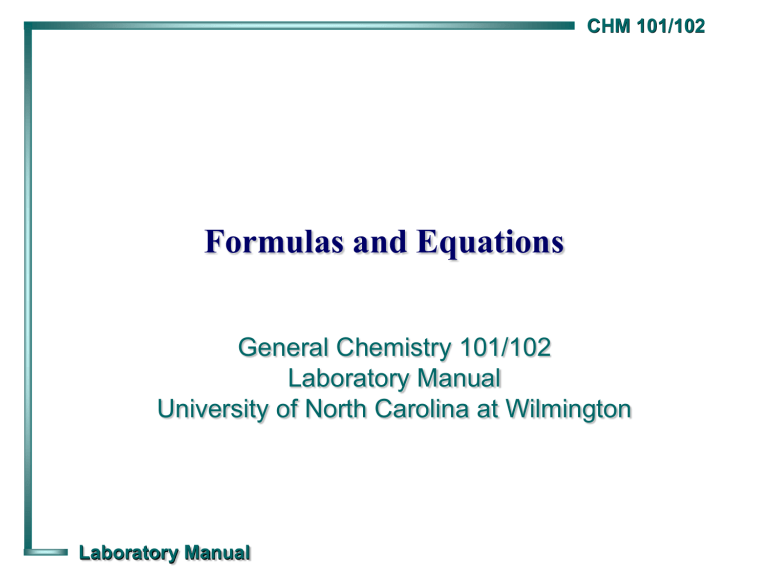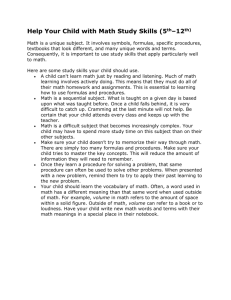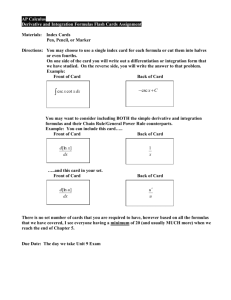Formulas and Equations - University of North Carolina Wilmington

Formulas and Equations
General Chemistry 101/102
Laboratory Manual
University of North Carolina at Wilmington
Formulas and Equations
•
Purpose
To learn the characteristic colors exhibited by ions in solution.
To practice writing chemical formulas and balanced chemical equations.
•
Safety Considerations
Rinse the contents of your spot plate into the proper container in the fume hood using your wash bottle.
Thoroughly rinse your hands with plenty of water after handling any chemical reagent.
Formulas and Equations
•
Procedure (Part 1)
This exercise is done individually. Observe the solutions that comprise Set 1. Record the name of the compound dissolved in each solution and the color of each solution.
clear, colorless solution
Set 1
Write the formulas of the compounds dissolved in each solution. Have your instructor check your work and initial your data sheet.
Formulas and Equations
•
Procedure (Part 1)
Repeat the procedure of recording names and colors and writing formulas for Sets 2 and 3.
Set 2 Set 3
Observe each of the four unknown solutions. Record the color of each solution and determine which ion(s) could be responsible for the color of the solution.
Formulas and Equations
•
Procedure (Part 2)
Add 3 drops of NaCl solution to a well in your spot plate. Now, add 3 drops of AgNO
3 solution to the well containing the NaCl solution.
Record your observations.
spot plate
Write a balanced chemical equation for the reaction you observed. Indicate the color of the precipitate.
AgNO
3
(aq) + NaCl (aq) AgCl (s) + NaNO
3
(aq)
(white)
Repeat the above procedure for the three remaining reactions.
Formulas and Equations
•
Procedure (Part 2)
Use the Handbook of Chemistry and Physics to look up the crystalline form and melting point of each precipitate formed in your chemical reactions.
Record the page numbers and edition of the Handbook you used.
Do NOT make marks in the Handbook!


